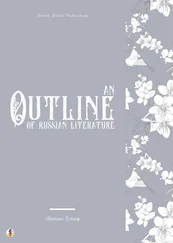We had pulled out on to the broad, six-lane avenue along which the traffic thundered ceaselessly through the city, where the heat and noise were extreme. The car windows were wide open, and my neighbour drove with one hand on the steering wheel while the other rested on the window sill so that his shirtsleeve flapped madly in the wind. He was an erratic driver, lunging from one lane to the next, and turning his head entirely away from the road while he talked, so that red lights and the backs of other cars would come rushing up to the windscreen before he noticed them. I was frightened and fell silent, staring out at the dusty lots and verges that had by now succeeded the big glinting buildings of the centre. We passed over an arching concrete intersection in a blare of horns and engine noise, the sun pounding on the windscreen and the smell of petrol and asphalt and sewage flooding through the open windows, and for a while drove alongside a man on a scooter, who had a little boy of five or six seated behind him. The boy was clinging to the man with both arms around his middle. He looked so small and unprotected, with the cars and metal palisades and huge junk-laden lorries rushing inches past his skin. He wore only shorts and a vest and flip-flops on his feet, and I looked through the window at his unshielded tender brown limbs and at his soft golden-brown hair rippling in the wind. Then the arching road curved around and began to descend, and there was the sea, blazing blue beyond a khaki-coloured scrubland littered with low abandoned buildings and unfinished roads and the skeletons of houses that had never been completed, where skinny trees now grew through the glassless windows.
I’ve been married three times, my neighbour said, as the little car flew down the hill towards the glittering water. He was aware, he said, that in yesterday’s conversation he had only admitted to two, but he had come here today vowing to be honest. There had been three marriages, and three divorces. I’m the full disaster, he said. I was thinking about how to reply when he said that another thing he needed to mention was his son, who was presently living at the family house on the island and who was rather unwell. He was in an extremely anxious state, and had been calling his father all morning. Those calls would no doubt continue over the next few hours, and though he didn’t want to answer them he would, of course, be obliged to. I asked what was wrong with his son and his birdlike face grew sombre. Was I familiar with the condition called schizophrenia? Well, that was what his son suffered from. He had developed it in his twenties after leaving university, and had been hospitalised several times over the past decade, but for a number of reasons too complicated to explain he was currently in his father’s care. My neighbour had judged that he was safe enough on the island, so long as he didn’t get his hands on any money. People were sympathetic there, and still held the family in sufficient esteem to tolerate small difficulties, of which there had already been a number. But a few days ago there had been a more serious episode, as a consequence of which my neighbour had had to ask the young man he had hired to be his son’s companion on the island to keep him under, as it were, house arrest. His son couldn’t bear incarceration, hence the constant phone calls, and when it wasn’t his son phoning it was the companion, who felt that the job was exceeding the terms of his contract and wanted to renegotiate his salary.
I asked whether this was the same son his second wife had locked in the cellar, and he said that it was. He had been a sweet child, but then he had gone to university, in England as it happened, and had developed something of a drug habit. He left without completing his degree and came drifting back to Greece, where various attempts were made to find employment for him. He was living with his mother, on the large estate outside Athens she shared with her ski-instructor husband, and my neighbour didn’t doubt that she found him a trial and a drag on her freedom, as his behaviour was deteriorating by the day; but all the same her first move, which was to have him committed without discussing it first with his father, was somewhat extreme. He was put on medication that made him so fat and inert he became, in effect, a vegetable; and his mother departed Athens with her husband, to take up their customary winter residence in the Alps. This was, of course, several years ago now, but the situation hadn’t fundamentally changed. The boy’s mother would have nothing more to do with him; if his father chose to remove him from hospital and have him live in the world, that was his responsibility.
I said it surprised me that his first wife, whom my neighbour had seemed rather to idealise in our earlier conversation, should behave with such coldness. It didn’t seem to fit with the impression I had formed of her character. He considered this, and then said that she hadn’t been like that in the time of their marriage: she had changed, had become a different person from the one that he knew. When he spoke of her fondly, it was the earlier version of herself he was speaking of. I said that I didn’t believe people could change so completely, could evolve an unrecognisable morality; it was merely that that part of themselves had lain dormant, waiting to be evoked by circumstance. I said that I thought most of us didn’t know how truly good or truly bad we were, and most of us would never be sufficiently tested to find out. But there must have been moments when he had glimpsed — even if only briefly — what she would become. No, he said, he didn’t think there were: she had always been an excellent mother, devoted above everything else to the children. Their daughter had become a great success and had been awarded a scholarship at Harvard; subsequently she was poached by a global software firm and was now in Silicon Valley, a place I must surely have heard of. I said that I had, though I had always found it difficult to envisage; I could never establish to what degree it was conceptual, and to what degree an actual place. I asked whether he had ever visited her there; he admitted that he had not. He never found himself in that part of the world, and besides, he would be worried about leaving his son for the length of time such a visit would require. But it was true that he hadn’t seen his daughter for several years, as she hadn’t returned to Greece. It seems success takes you away from what you know, he said, while failure condemns you to it. I asked whether she had any children, and he said that she didn’t. She was in a partnership — was that what you called it? — with another woman, and other than that her work was everything to her.
He supposed, he said, now that he thought about it, that his wife was something of a perfectionist. One argument, after all, was all it had taken to end their marriage: if there was a sign of what she might become, perhaps it was that failure was something she was unable to tolerate. After their separation, he said, she had immediately taken up with a very rich and notorious boyfriend, a ship-owner, a relative of Onassis: he was really fabulously wealthy, this man, and good-looking, and also a friend of her father, and my neighbour had never been able to find out why the relationship had ended, for it was his impression that this man was everything she had ever wanted. In a way it had helped him to understand the failure of their marriage, her choice of this handsome billionaire; he could accept his own defeat at the hands of such an adversary. Kurt the ski instructor, on the other hand, was baffling, a man without charm or money, a man who only came alive for a few months a year, when there was snow on the mountains; a man, moreover, of fanatical religious beliefs and observances, to which he apparently insisted his wife and her children — while they still remained at home — submit. The children told him tales, of enforced prayers and silences, of being made to sit at table — for hours if necessary — until they had finished every piece of food on their plates, of being asked to call him ‘father’ and forbidden television and entertainments on Sundays. Once my neighbour had had the temerity to ask her what she saw in Kurt and she replied, he is the exact opposite of you.
Читать дальше












